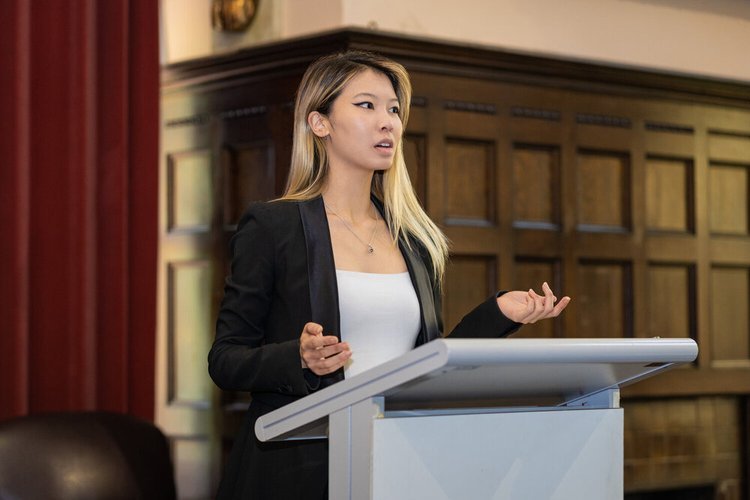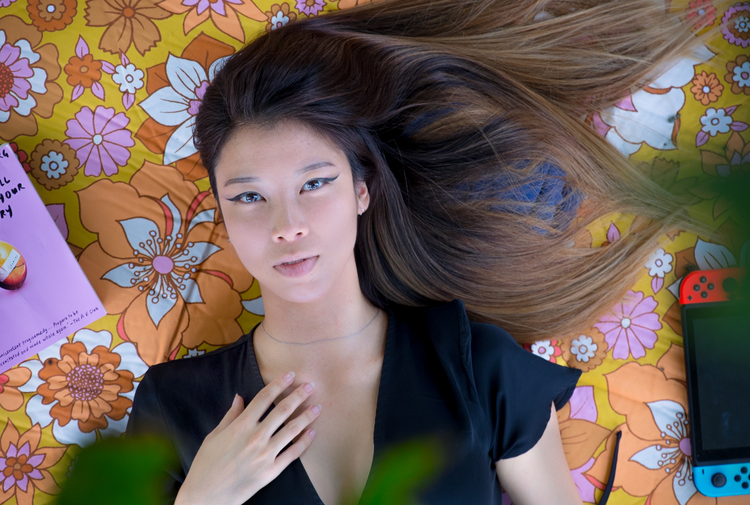INTERVIEW with Emily Unity || Lived & Living Experience Professional
From Emily’s website
SD: Hi Emily. Can you introduce yourself to my readers who don't know you yet?
EU: Hi Suzanne! Thanks so much for having me.
I’m Emily and my pronouns are they/them. I’m 25 and I’m currently living on stolen Wurundjeri land in Melbourne, but I’m originally from Noongar Country in Perth. I am a LGBTQIA+, disabled, and neurodiverse young person from a refugee and migrant background. I’m currently working as a mental health professional and a software engineer. They might sound like very different career paths, but the common tie between them is that they give me opportunities to help people in creative ways.
SD: As a mental health advocate, what is the most common thing you hear from people living with mental health conditions?
EU: Everyone’s recovery journey is unique. However, a common thread is the shared experience of being subject to systemic inequalities.
My own experience of navigating the mental health system was rife with inequities. Now that I work as a mental health professional, I know how pervasive that experience is. When you’re struggling, it’s extremely difficult to believe that you deserve help, but it’s even harder when you realise that the help-seeking process relies on privilege and luck.
SD: What do you wish people knew about mental health?
EU: In my work, there is the term “lived and living experience”, which refers to the expertise that one gains from personal experiences mental health challenges and recovery, or caring for someone with their mental health challenges and recovery. This unique form of expertise has historically been excluded from decision-making in mental health systems. In doing so, mental health systems often involve things being done “to” or “for” us, but not “with” us. The lived and living experience movement helps change that narrative and advocates for people to be involved in everything that affects them.
From Emily’s website
SD: Why do you think there is a stigma associated with mental health conditions?
EU: As humans, we’re scared of what we don’t know. Mental health challenges and recovery are so unique to each individual. Historically, there has been an exclusion of lived and living experiences, thus a lack of insight into what mental health challenges can truly look and feel like beyond limited third-party scientific observations. There has also been a fear of speaking up about mental health challenges and recovery due to a lack of mental health literacy. It is my hope that we can address the stigma by having courageously vulnerable conversations and respecting lived expertise for the purpose of learning and growing together.
SD: What role can culture play in this stigma?
EU: I think when people normally see the world “culture”, it can be a divisive topic between those who are “culturally diverse” and those who are a part of the majority. However, I believe that we all have culture, whether it be our cultures at home, at work, at school, or amongst friends. There are unspoken rules about what is acceptable and what is not depending on where we are and who we are with. Culture is the lens through which we see the world. Many cultures have an unspoken rule that speaking about mental health is uncommon or taboo. This is stronger in some cultures than others and can perpetuate stigma through intergenerational means. As an example, my refugee and migrant background certainly played a large role in my initial stigmatisated views of mental health and resulted in a significantly more challenging recovery journey.
SD: What are your go-to self-care practices or tools that work best for you when you are depressed or struggling to get out of bed?
EU: I think what is important to note is that I still have those days that I feel like it’s nearly impossible to get out of bed. Recovery isn’t binary - it’s an ongoing journey and I have learned to be kind to myself and do the best with each day that I have.
Normally I’m a huge fan of creative and sensory techniques like music and art, but if I’m stuck in bed, they can be a little difficult. My go-to at the moment is “parallel playing” or “body doubling” with someone that I care about. Often my loved ones really want to help me when I’m low, but I often don’t have enough energy to do anything together. Instead, we’ll stay on a call or just be around each other, doing our own thing without consistently engaging with each other. It’s the perfect amount of love for me when I’m finding it hard to love myself and to accept it from others.
From Emily’s website
SD: Do you have advice for people who are too embarrassed to get help?
EU: The people who mind don’t matter and the people that matter don’t mind. I was raised in an environment where I was punished for displaying emotion and help-seeking was completely out of the question. I spent so much of my childhood feeling ashamed of who I was. When I was pushed to a crisis state and was forced to receive support, I still felt guilty and embarrassed for receiving help. It has taken a lot of healing and learning to understand that I am not responsible for the views of others. I deserve help and I will no longer surround myself with people who make me feel bad for it.
SD: What do you want people with mental health conditions to know?
EU: Healing looks different for everyone. For me, I tried numerous types of traditional talk therapies, treatments, and medications. They definitely helped to an extent. However, the catalyst in my recovery journey was finding people who genuinely understood what I was going through because they had lived it. That shared lived experience was indescribably powerful. It was the first time I had found diverse perspectives and role models of recovery. It was the first time I didn’t feel alone.
If you are struggling. If you are fighting off your demons. Please know: You are not over-exaggerating. You are not too sensitive. You are not alone.
Emily’s social media presence:
Website: http://www.emilyunity.com/
Instagram: http://www.instagram.com/emilyunity/


